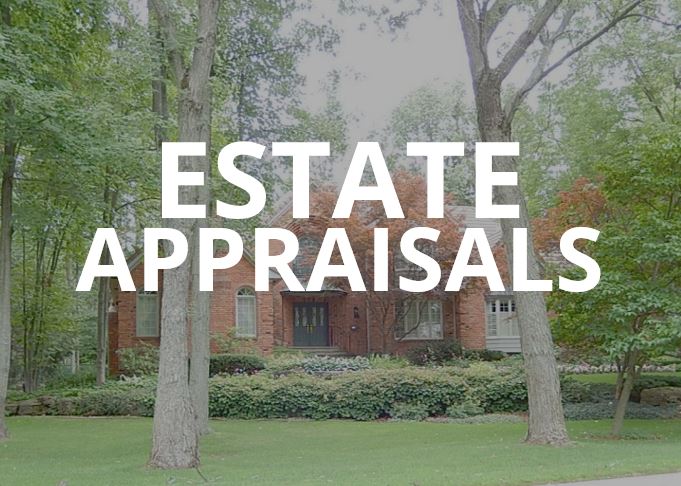When an estate involves real estate, proper valuation can be crucial
It’s a common situation: An elderly parent dies, leaving behind a spouse, adult children and young grandchildren. The family home is owned outright, or has a small mortgage, and everyone assumes that the home will be sold and the proceeds divided. Simple, right? After all, there’s a straightforward Will and no one’s arguing.
Except that when there is a surviving spouse, and/or step-children, and the Will turns out to be a little more vague than it should have been, that ‘family home’ can become a real source of confusion and conflict at one of the worst times in a person’s life. What’s more, while this situation is ‘common’ for people like appraisers or lawyers who deal with it all the time, it’s not at all common for the average person, who only encounters it once or twice in their lives.
Here’s we’ve put together answers to some of the questions we’re asked most often about estate-related real estate valuation.
Do I really need an appraisal? Why?
Yes. Unless the property is worth less than a few thousand dollars (unlikely here in Ontario), or there is only a single next of kin who is a beneficiary (also very unusual) and therefore little chance of the estate being contested, any real estate properties should be properly appraised and the reports provided to the estate.
Why is an official documentation of the value so important? Well, it goes a long way to preventing conflict between siblings or other beneficiaries when the property is sold by providing a neutral value that can be used in the event one beneficiary wants to buy the other(s) out or when a purchase offer is received and the beneficiaries are determining whether to accept or reject that offer. We’ve seen some unfortunate cases where Sibling A believes a property is worth $500,000, while Sibling B believes it’s worth $750,000, and then waste years in a legal stalemate because neither will agree to a sale or other disposition.
Is it okay to get a real estate agent to do the appraisal?
Generally speaking, no. Whenever there are Wills and Estates involved, there tend to be lawyers and banks involved as well, and if the situation gets contentious, it could end up in court.
A report by a certified appraiser (CRA or AACI) will always be given more weight in any legal proceedings because they are considered to be highly-trained, unbiased valuators who have no stake in the value of the property they’re assessing. Real estate agents, on the other hand, may (unconsciously or consciously) allow their valuations to be affected by the prospect of a sales opportunity in future. Additionally, the CRA and AACI designations carry with them certain duties and responsibilities that can affect their professional standing.
(It should be added that in some remote, sparsely-populated areas, such as northern Ontario, the local real estate salespeople may in fact be better placed to value a property than an appraiser who might have to be brought in from another region. In these cases, the local lawyers and court personnel are often familiar with the real estate professionals and accord their valuations more weight in the event there is a contested Will.)
But the real estate person said they’d do it for free. Aren’t appraisers expensive?
Real estate agents offer ‘free’ valuations because they hope to list the property once the estate is settled, and that means their valuation can’t be unbiased. A residential appraisal by a certified appraiser is generally less than $500 in Ontario – and is likely to save you a lot of lawyers’ time later on.
Who should choose the appraiser?
If there is any possibility of conflict with the estate – and even if there isn’t – it’s often prudent to let the lawyer or bank handling the estate help you choose an appraiser. They can provide you with a list of, say, 3 certified appraisers they recommend and then you can select one of them. Again, this helps the process stay as emotionally neutral as possible.
What about probate? And COVID?
In Ontario, probate fees are calculated on the value of the deceased’s assets on the day of their death. Ensuring that the appraisal reflects that date, rather than the date on which the property inspection may have been done, is particularly important in markets – like in most of southern Ontario and cottage country – where real estate values have been rising sharply for years.
And the pandemic of 2020, which has seen an unusual combination of economic slowdown with real estate prices at record highs, will continue to complicate the valuation process for a long time to come.
Probate and market volatility make ‘date of death’ valuation more important than most people realize when they are managing an estate – and here again, having an unbiased appraisal can save a lot of headache and sleepless nights later on.
Have questions or concerns regarding valuations for estates?
We know it can be tough to think about before someone (including yourself) passes, and it doesn’t get easier once you’re the executor for someone who has recently passed. If you have any questions or concerns, don’t hesitate to get in touch.


